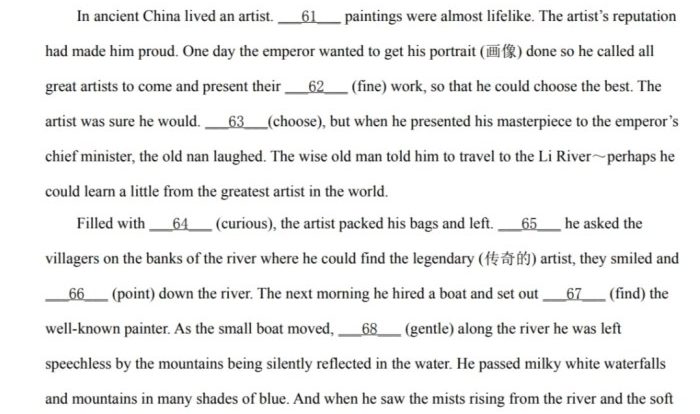Dive into Unit 7 APUSH Progress Check MCQ and embark on an enlightening journey through the pivotal moments that shaped the American Revolution and the nation’s early development. This comprehensive guide will provide you with a thorough understanding of the historical context, key figures, social and economic impact, constitutional framework, and foreign policy of this transformative era.
From the French and Indian War to the drafting of the Constitution, you’ll gain insights into the challenges, triumphs, and decisions that laid the foundation for the United States.
Unit 7 APUSH Progress Check MCQ
The French and Indian War (1754-1763) marked a significant turning point in the relationship between Great Britain and its American colonies. The war, fought primarily over territorial claims in North America, had profound implications for the political, economic, and social development of the colonies.
French and Indian War
The French and Indian War was a conflict between Great Britain and France for control of North America. The war began in 1754 with skirmishes between British and French forces in the Ohio River Valley. The conflict quickly escalated into a full-scale war that involved Native American allies on both sides.
The war ended in 1763 with the Treaty of Paris, which gave Great Britain control of most of North America east of the Mississippi River.
Major Events Leading to the American Revolution
The French and Indian War had a profound impact on the relationship between Great Britain and its American colonies. The war led to increased British control over the colonies and the imposition of new taxes and regulations. These measures angered many colonists and led to growing calls for independence.Some
of the key events leading up to the American Revolution include:
- The Stamp Act (1765): A tax on printed materials that angered many colonists.
- The Boston Massacre (1770): A clash between British soldiers and colonists that resulted in the deaths of five colonists.
- The Boston Tea Party (1773): A protest by colonists against British tea taxes that resulted in the destruction of a shipment of tea.
- The First Continental Congress (1774): A meeting of delegates from twelve colonies that called for a boycott of British goods.
- The Battle of Lexington and Concord (1775): The first military engagement of the American Revolution.
Enlightenment Ideas and the Declaration of Independence
The Enlightenment was a philosophical movement that emphasized reason and individual rights. Enlightenment ideas had a profound impact on the American Revolution.The Declaration of Independence, written by Thomas Jefferson in 1776, was a statement of the colonists’ grievances against Great Britain.
The Declaration declared that all men are created equal and that they have the right to life, liberty, and the pursuit of happiness. The Declaration also stated that governments derive their power from the consent of the governed.
Unit 7 APUSH Progress Check MCQ
This progress check will assess your understanding of key figures and events in the American Revolution.
Benjamin Franklin, Thomas Jefferson, and George Washington
These three individuals played pivotal roles in the American Revolution:
- Benjamin Franklin:Inventor, scientist, and diplomat who helped secure French aid and negotiate the Treaty of Paris.
- Thomas Jefferson:Author of the Declaration of Independence, which articulated the principles of American independence.
- George Washington:Commander-in-Chief of the Continental Army, who led the colonies to victory.
Battle of Saratoga and Battle of Yorktown
These two battles were turning points in the American Revolution:
- Battle of Saratoga (1777):American victory that convinced France to enter the war on the side of the colonies.
- Battle of Yorktown (1781):Final major battle of the war, which resulted in the surrender of the British army and the eventual recognition of American independence.
Challenges Faced by the Continental Army and Role of Foreign Aid
The Continental Army faced significant challenges:
- Lack of supplies, weapons, and training.
- Low morale due to defeats and harsh conditions.
- Difficulty in coordinating between different states.
Foreign aid, particularly from France, played a crucial role in the success of the Continental Army:
- Provided financial support, weapons, and supplies.
- Sent troops and naval forces to assist in the war effort.
- Recognized American independence, boosting morale and international support.
Unit 7 APUSH Progress Check MCQ
Social and Economic Impact
The American Revolution brought about significant changes in the social and economic fabric of the American colonies. The war disrupted established social hierarchies and created new opportunities for economic advancement.
Changes in Social Structure
The war weakened the power of the British aristocracy and the Loyalist elite. Many Loyalists fled the colonies, creating a vacuum in the upper echelons of society. This allowed for the rise of new leaders, often from the middle and lower classes, who had supported the Revolution.
The war also led to a greater sense of equality among Americans, as they had fought side-by-side for a common cause.
Economic Opportunities
The war created new economic opportunities for ordinary Americans. The disruption of British trade allowed American merchants and manufacturers to expand their businesses. The war also led to the creation of new industries, such as shipbuilding and iron production. Many veterans of the war received land grants as payment for their service, which helped to create a class of independent farmers.
Role of Women and African Americans
Women and African Americans played important roles in the Revolution, but their experiences differed significantly from those of white men. Women provided vital support to the war effort by cooking, sewing, and nursing. Some women, such as Molly Pitcher, even fought in battle.
However, women were not granted the same rights as men after the war.African Americans also fought for independence, but they were not granted their freedom. The Declaration of Independence proclaimed that “all men are created equal,” but this did not apply to slaves.
After the war, slavery continued to exist in the United States, and African Americans faced discrimination and oppression.
Economic Consequences of the War
The war had a significant impact on the American economy. The colonies incurred a large national debt, which took many years to repay. The war also disrupted trade, which led to a decline in economic activity. However, the war also stimulated the growth of new industries, which helped to lay the foundation for the American economy in the years to come.
Unit 7 APUSH Progress Check MCQ
Constitutional Framework
The Articles of Confederation established a loose alliance of independent states with limited federal powers. The central government had no power to tax, regulate commerce, or maintain an army. This limited structure and lack of authority hindered the government’s ability to address national issues.The
Constitutional Convention was convened in 1787 to address the shortcomings of the Articles of Confederation. The delegates debated and compromised on various issues, including the balance of power between the states and the federal government, the structure of the legislative and executive branches, and the protection of individual rights.The
resulting Constitution established a stronger federal government with a system of checks and balances to prevent any one branch from becoming too powerful. It also included a Bill of Rights, which guaranteed individual freedoms such as freedom of speech, religion, and the right to bear arms.
The Bill of Rights has played a crucial role in shaping American constitutional law and protecting the rights of citizens.
Unit 7 APUSH Progress Check MCQ: Foreign Policy and Expansion
The young United States faced numerous challenges in establishing its foreign policy, including navigating relationships with Great Britain, France, and Spain. These European powers held significant influence in North America and sought to maintain their economic and political interests. The Louisiana Purchase and the War of 1812 played pivotal roles in shaping American territorial expansion and national identity.
The Monroe Doctrine, proclaimed in 1823, further defined U.S. foreign policy by declaring the Americas off-limits to European colonization.
Challenges in Establishing Foreign Policy, Unit 7 apush progress check mcq
The United States inherited complex relationships with European powers following its independence. Great Britain, which had recently lost control of the thirteen colonies, remained a significant economic and military presence in North America. France, an ally during the American Revolution, had its own territorial ambitions in the region.
Spain controlled vast territories in the west and southwest, including Florida and Louisiana.
Louisiana Purchase and War of 1812
The Louisiana Purchase in 1803 doubled the size of the United States, acquiring vast lands from France. This acquisition provided access to the Mississippi River and westward expansion. The War of 1812, fought primarily against Great Britain, ended in a stalemate but boosted American nationalism and territorial ambitions.
Monroe Doctrine
The Monroe Doctrine, issued by President James Monroe in 1823, declared that the Americas were off-limits to European colonization. It asserted the United States’ role as the protector of the Western Hemisphere and had a profound impact on U.S. foreign policy in the 19th century.
FAQs
What is the significance of the Battle of Saratoga?
The Battle of Saratoga was a turning point in the American Revolution, as it convinced France to enter the war on the side of the Americans, providing crucial support that ultimately led to the American victory.
How did the Declaration of Independence influence American political thought?
The Declaration of Independence articulated the principles of natural rights, popular sovereignty, and limited government, which became the cornerstone of American political ideology.
What were the key challenges faced by the Continental Army?
The Continental Army faced numerous challenges, including a shortage of supplies, lack of training, and low morale. However, they were able to overcome these obstacles through the leadership of George Washington and the support of foreign aid.


